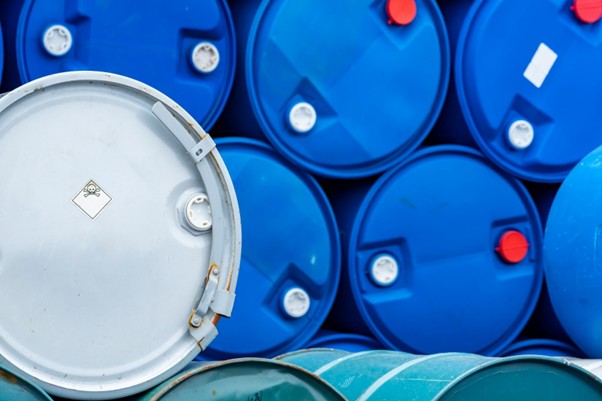Hazardous waste isn’t just a household concern anymore. It has become a major issue for businesses across Australia. From construction sites to office blocks, commercial operations generate materials that can’t simply be tossed in the bin.
Mishandling them risks environmental damage, hefty fines, and a tarnished reputation. The good news? With the right practices, businesses can manage hazardous waste responsibly and even turn it into an advantage.
At Cleanway, we’re committed to helping Australian companies handle waste the smart way.
This blog breaks down what hazardous waste means for businesses and offers nine practical tips to get it right. Plus, we’ll explore why it’s worth the effort.
What Is Hazardous Waste in a Commercial Context?
Hazardous waste in commercial settings refers to any by-product that poses a risk to people, property, or the environment due to its chemical, biological, or physical properties.
Think paints, solvents, batteries, or old electronics. It’s the stuff that’s common in industries like manufacturing, construction, and hospitality.
For businesses, managing it means following strict regulations, like those set by Safe Work Australia or state environmental agencies, to ensure safe disposal and avoid contamination. It’s about protecting your workplace and the world beyond it.
8 Effective Hazardous waste and Commercial Practices
Hazardous waste management, like most waste management practices, seeks to find effective ways to manage waste generated. When it comes to hazardous waste, whether business or household hazardous waste, there is a degree of danger involved.
We all know that hazardous substances can harm human health. But, this is made all the worse when improper disposal practices are used.
This is more than throwing things in the wrong bin though. It can include neglecting hazardous waste tracking and not following the suggestions of bodies like the United nations environment programme.
1. Know Your Waste Types
Every business produces different waste, so step one is identifying what’s hazardous. Chemicals, asbestos, or medical waste all need specific handling. Check product labels, safety data sheets, or consult your supplier to confirm.
Once you know what you’re dealing with, you can plan disposal properly. Cleanway’s hazardous waste services offer guidance if you’re unsure—better safe than sorry.
2. Train Your Team
Your staff are your frontline defence against waste mishaps. Make sure they understand what hazardous waste is and how to handle it—whether it’s wearing protective gear or storing materials correctly.
Regular training keeps everyone up to speed on regulations and best practices. It’s a small investment that prevents big problems down the track.
3. Use Proper Storage
Hazardous waste can’t sit in any old container. Use labelled, leak-proof bins or drums designed for the job—think chemical-resistant for solvents or sealed units for asbestos.
Store them in a secure, well-ventilated area away from drains or public access. Good storage cuts risks and keeps you compliant with local laws.
4. Segregate Waste Streams
Mixing hazardous waste with regular rubbish is a recipe for trouble. Keep it separate—chemicals in one bin, e-waste in another, and general waste elsewhere.
Clear signage and colour-coded bins help avoid mix-ups. It makes disposal easier and ensures nothing slips through the cracks.
5. Partner with Licensed Pros
Disposing of hazardous waste isn’t a DIY job. Licensed waste management companies, like Cleanway, have the gear and know-how to handle it safely. From collection to treatment, they’ll ensure it’s done right.
Check out our waste management services for tailored options. It’s peace of mind and compliance in one go.
6. Keep Records
Regulators love paperwork, and hazardous waste is no exception. Track what you produce, how it’s stored, and where it goes.
Digital logs or a simple spreadsheet work fine. It’s not just about covering your back. This helps spot patterns to reduce waste over time.
7. Minimise Waste Production
The less hazardous waste you create, the less you have to manage. Swap out harsh chemicals for safer alternatives where possible, or tweak processes to use less.
For example, switching to water-based paints cuts solvent waste. It’s a proactive way to lighten the load and the cost.
8. Plan for Spills
Accidents happen, especially with hazardous materials. Have a spill kit on hand (absorbents, gloves, bins) and a clear response plan. Train your team to contain, clean, and report spills fast.
Preparation keeps small issues from becoming big headaches. It’s all part of responsible waste management.
The Benefits of Managing Hazardous Waste Well
Getting a grip on hazardous waste isn’t just about ticking boxes. It delivers real value for businesses. Here’s how it pays off environmentally, economically, and socially.
Environmental Benefits
Proper management stops hazardous materials from leaching into soil, water, or air. Landfills mitigate toxic overload, and recycling options, such as e-waste recovery, reduce the need for raw materials. For instance, recycling batteries keeps heavy metals out of the ecosystem.
Economic Benefits
Smart waste practices save money. But there’s more: reducing waste lowers disposal costs, and selling recyclable materials (like scrap metal) can bring in cash.
Additionally, efficient processes reduce operational expenses. For businesses, it’s a bottom-line boost that adds up.
Social Benefits
Handling waste right builds trust. Customers and communities notice when a company cares. It’s good PR and strengthens your reputation. Safe workplaces also mean fewer staff injuries, keeping morale high and turnover low.
Why It Matters for Australian Businesses
Australia’s commercial sector churns out a lot of waste—hazardous included. Government stats show industrial and construction waste alone account for millions of tonnes yearly. Mishandling it risks environmental harm and legal trouble, especially with regulators cracking down. For businesses, getting this right isn’t optional—it’s essential.
Final Thoughts
These nine tips offer a clear path to managing hazardous waste in your business. From knowing your waste to partnering with pros, they’re practical steps that fit any operation. The benefits—environmental protection, cost savings, and a stronger community standing—make it worth the effort.
Ready to act? Start with a waste audit or a quick chat with your team about training. Cleanway’s here to help—visit our website

